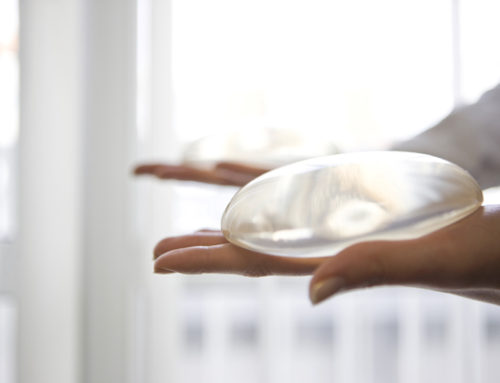When considering breast surgery, whether it’s breast reconstruction, breast reduction, or getting breast implants, it’s essential to properly prepare yourself for your cosmetic plastic surgery procedure. This involves researching and planning from consultation to recovery.
To ensure a healthy experience, positive outcome, and speedy recovery, it’s crucial that you follow some simple guidelines and alleviate any anxiety you may have. This article will discuss everything you need to know to prepare for breast augmentation surgery.
We’ll cover essential preparation steps for breast augmentation surgery, important dos and don’ts leading up to the procedure, what to do and expect the day of the surgery, and tips for a successful and faster recovery.
Preparing for Breast Augmentation Surgery
If you’re considering breast augmentation surgery, taking a thorough look at all factors is crucial. This type of surgery involves both financial and physical investments, so it’s important to familiarize yourself with the process from consultation to recovery to ensure a smooth experience. Before making any decisions, the board-certified plastic surgeon in Nashville, TN, or Brentwood, TN, whom you choose to perform the surgery can help guide you through the process.
Preparing for breast augmentation surgery involves educating yourself and taking the necessary steps to prepare before the surgery. This includes discussing your goals with your plastic surgeon, selecting the type and size of implants, and ensuring you’re financially secure. However, ensuring you’re mentally and physically prepared for cosmetic surgery is equally important. While breast augmentation is a popular and safe procedure, with millions of surgeries performed annually, it’s still a serious procedure that requires a patient to be in good health and of sound mind.
Below you will discover answers to the most frequently asked questions about preparing for breast augmentation surgery. After reading, if you have further questions, don’t hesitate to contact us anytime throughout your breast augmentation journey.
Before Breast Augmentation Surgery Do’s
Before your breast augmentation surgery, your surgeon will provide you with specific instructions that you need to follow. These instructions may include pre-operative blood testing, fasting the night before surgery, and avoiding lotions, deodorant, makeup, sprays, or powders on the day of surgery.
Additionally, there are other important things that you should consider in the weeks leading up to your surgery to ensure a successful procedure and satisfactory results. Here is a list of important “do’s” before your breast augmentation surgery.
Do: Book a Complimentary Consult to Discuss Implant Type and Size
Booking a complimentary consultation with a qualified plastic surgeon is a crucial step in your breast augmentation journey. During this consultation, you will have the opportunity to ask important questions about breast augmentation and discuss the appropriate implant type and size for your desired outcome.
The surgeon will assess your unique anatomy, listen to your aesthetic goals, and provide professional recommendations based on their expertise. This personalized consultation allows you to make an informed decision about the implants that best suit your body proportions, lifestyle, and desired aesthetic results.
Taking advantage of this consultation will ensure that you clearly understand the implant options available to you and will help you achieve the most satisfactory outcome from your breast augmentation surgery.
Do: Ensure you are Ready for the Commitment
While breast implants can be removed or replaced, it is important to approach the decision to have breast augmentation surgery with careful consideration. Breast augmentation is a transformative procedure that alters your body and is a commitment that encompasses physical, financial, and emotional aspects.
It is essential to be fully prepared before embarking on this transformative journey. Take the time to reflect on your motivations, have realistic expectations, and seek support from loved ones or professionals if needed.
Do: Make Sure you are Financially Secure
Breast augmentation surgery is a costly procedure not typically covered by insurance and one you don’t want to jump into without looking at your finances. Before making any decisions, look up what surgery would cost with a reputable surgeon and see if it fits your budget.
Ensure you have saved enough money beforehand or can make payments without falling behind on essential bills. Plastic surgery facilities often offer affordable payment plans that offer far better interest rates than putting the surgery on a credit card.
Lastly and most important, DO NOT search for the cheapest option or search for “Groupon” deals when it comes to something like cosmetic surgery. You get what you pay for. You only want your breast augmentation surgery performed by a high-quality board-certified plastic surgeon. This often means you will spend more money, but it is crucial for your safety and satisfaction. If you can’t afford a reputable cosmetic surgeon, hold off on surgery until you can.
Do: Get Into Shape, Physically and Emotionally
One of the key components to successful surgery and recovery is being emotionally and physically healthy at the time of the surgery. Physically, you should be at a healthy, stable weight before surgery. Follow a nutritious diet, exercise, and get plenty of sleep. Those in good shape tend to have a better recovery time than those who do not live the healthiest lifestyles.
Preparing your mind for your surgical journey is just as important as preparing your body. Emotionally, you should ensure that you have realistic expectations and check in with yourself to ensure your motives for cosmetic surgery are healthy.
While breast augmentation can no doubt change your life and help enhance self-esteem, if you suffer from body image issues, it’s essential to recognize that altering your physical appearance alone won’t address underlying mental health concerns. If needed, seek professional help and engage in therapy or counseling to address underlying body image issues or other mental health challenges.
Do: Keep Your Immune System Strong
The last thing you want is to cancel your surgery because you get sick. To keep your immune system strong, you must maintain proper health and hygiene in the weeks leading up to surgery.
Follow a healthy balanced diet, exercise, take your vitamins (unless you are advised to stop them), practice good hand-washing, and avoid being around people who are sick. If you aren’t feeling well or have any changes to your health, it is crucial that you advise your surgeon’s office immediately.
Do: Prepare and Plan for Post-Op
After undergoing breast augmentation surgery, it is crucial to be well-prepared for the recovery period. Most likely, your plastic surgeon will have a set of rules for you to follow before and after the surgery, but it never hurts to plan ahead and be prepared.
Here are a few proactive steps you should take to organize your affairs before the day of surgery to ensure you can comfortably focus on relaxation and recovery, free from unnecessary concerns.
- While breast augmentation is an outpatient procedure, and you should be able to go home a few hours after you wake up, you cannot drive. Arrange for transportation to and from your surgery.
- Ideally, you should arrange for someone to stay with you for the first 24-48 hours following surgery, including overnight. Ensure the person you rely on for support is reliable. Having an excellent support system after your surgery will make a world of difference in your recovery.
- Request appropriate time off work and notify your employer in advance. If you work a desk job that does not require much movement or lifting, you should be able to return to work in a few days. If your job requires lifting or physical labor, you will want to consult with your surgeon so that you can take off the appropriate amount of time.
- Organize childcare and pet care, considering additional assistance if required for lifting young children.
- Set aside time to get your house in order: clean up, do laundry and dishes, pay bills, and handle important affairs.
- Arrange your bathroom so all essentials are within reach (toilet paper, toothbrush, toothpaste, contact lenses, etc.)
- Fully stock your fridge with ready-to-go meals and snacks, or pre-order from a meal prep service if you do not have someone to cook for you.
- Consult your doctor about any post-operative garments you must purchase, such as comfortable, front-opening sports bras without wires. Have them purchased and ready.
- Fill prescriptions ahead of time and gather necessary supplies like ice packs, gauze, and other recommended items.
- Create a comfortable resting space at home with a recliner or a bed equipped with pillows for support, and set up a nearby table stocked with essential items. You will want easy access to things such as a water bottle with a straw, medications, phone, books or other entertainment, remote control, and a waste can or garbage bag for potential nausea.
- Prepare a small recovery bag to bring with you to surgery. Items might include your ID, credit card, cash, a water bottle, simple dry snacks, chapstick, a change of clothes and shoes that are easy to put on and take off, and a plastic bag in the car if you feel nauseous, etc.
After breast augmentation surgery, it’s no secret that you will feel soreness and tenderness. You’ll also be very tired and lethargic for a couple of days due to the pain medication. Taking a little time to prepare and plan will make the healing process much easier.
Do: Relax
Feeling stress and anxiety leading up to your planned surgery, including breast augmentation, is not uncommon. However, it is important to prioritize your emotional well-being throughout the process. If you find yourself experiencing significant stress or distress regarding the thought of surgery, it is crucial to reach out to our office for support and guidance.
We understand the significance of this decision, and your peace of mind and emotional well-being are our top priorities. We are committed to supporting you throughout your journey to help ensure a positive surgical experience and optimal results.
Before Breast Augmentation Don’ts
Just as there are things you should do before breast augmentation surgery, there are also a few things you should avoid to ensure a safe, successful surgery.
Here is a list of some important don’ts to consider before breast augmentation surgery.
Don’t: Ignore Pre-Op Instructions
The pre-operative instructions provided by your surgeon for breast augmentation surgery are in place for good reason. Following pre-op instructions diligently contributes to a safe and effective breast augmentation procedure, setting the stage for a smooth recovery and optimal results.
For example, your surgeon may provide specific guidelines on what to wear, when to stop eating or drinking before surgery, what makeup, lotions, deodorants, and sprays to avoid on the day of surgery, and what medications to avoid in the days leading up to the procedure. Disregarding these instructions may compromise your safety and the success of the surgery.
Always follow pre-op instructions carefully, and if you have any questions or concerns, never hesitate to reach out.
Don’t: Smoke
Smoking should be avoided before and after breast augmentation surgery due to its detrimental effects on overall health and the success of the procedure. Smoking increases the risks of complications during and after surgery, delays the healing process, compromises the aesthetic outcome, and poses general health risks.
By refraining from smoking, you can enhance the safety, efficiency of healing, aesthetic results, and overall well-being associated with breast augmentation. Quitting smoking several weeks before the procedure and abstaining throughout the recovery period are highly recommended for optimal outcomes.
Don’t: Take Certain Drugs/Medications
It is important to avoid certain drugs and medications before undergoing breast augmentation surgery. Specifically, you should avoid blood thinning medications, as they can increase the risk of excessive bleeding during and after the procedure. Some examples of blood thinners to avoid may include aspirin, ibuprofen, naproxen, and certain herbal supplements such as ginkgo biloba and fish oil.
Additionally, there may be other medications that are generally advised to be adjusted or temporarily stopped prior to surgery. These may include certain non-essential medications, herbal remedies, and supplements. It is crucial to follow your surgeon’s guidance and discuss any medications you are taking during your preoperative consultations.
However, it is important to note that you should never stop taking prescribed medications without consulting your doctor. If you are taking any prescription medications, discuss them with your surgeon and primary care physician to determine the appropriate course of action.
Don’t: Stress and Worry
We understand that undergoing any type of surgery can bring about stress and worry, but it is important to minimize these emotions as much as possible, as they can have negative effects on your physical and emotional well-being. Stress weakens the immune system and can interfere with the healing process. By managing stress and maintaining a positive mindset, you can promote a smoother recovery.
Rest assured that breast augmentation is a safe and FDA-approved procedure backed by extensive research and regulations. Trust in your surgeon’s expertise and communicate any concerns or questions you may have.
Don’t: Slack on Sleep
Getting adequate sleep, especially the night before breast augmentation surgery, is important for your overall well-being and the success of the procedure, as sleep plays a vital role in the body’s healing process and allows your immune system to function at its best, promoting a stronger defense against potential infections or complications.
Moreover, sleep deprivation can affect your mental and emotional state. Lack of sleep can increase stress levels, impair cognitive function, and contribute to feelings of anxiety or nervousness. By ensuring sufficient rest, you can approach the surgery with a calmer and more composed mindset.
Additionally, getting a good night’s sleep before the procedure can help improve anesthesia tolerance and minimize the risk of post-operative complications. It sets the foundation for a smoother surgical experience and a more comfortable recovery.
To optimize your sleep, establish a relaxing bedtime routine and create a sleep-conducive environment. Avoid caffeine and stimulating activities close to bedtime. Aim for the recommended hours of sleep to support your body’s healing process and enhance your overall well-being.
How to Prepare for the Day of Breast Augmentation Surgery
On the day of your breast augmentation surgery, double-check your pre-op instructions and ensure you follow all dos and don’ts – such as not eating or drinking, not applying lotions or deodorants, and removing any jewelry, contact lenses, makeup, and nail polish. Don’t forget your post-op bag, and wear a baggy top that buttons in front and pants and shoes that easily pull on and off. You might also want to bring some warm socks or slippers.
Arrive at the surgical facility or hospital at your scheduled time or slightly before. Don’t be late! Punctuality ensures the surgical team can efficiently proceed with the planned procedure and maintain the surgical schedule. Arriving on time also allows you to complete necessary paperwork or pre-operative preparations without rushing.
After checking in, you will be directed to a pre-operative area where the necessary preparations will occur. In this area, you will be given a gown to change into, and a nurse or medical staff will go over your medical history, confirm the details of the procedure, and answer any last-minute questions or concerns you may have. They will also likely take your vital signs, such as blood pressure and heart rate, to ensure you are stable for the surgery.
Once everything is in order, you will be accompanied to the operating room. The surgical team will guide you through the process, ensuring your comfort and safety, and your procedure will begin. The length of the procedure varies based on individual factors such as the surgical technique, implant type, and any additional methods involved. The specific duration will be discussed with you by your surgeon during pre-op consultations, but typically, breast augmentation surgery takes around 1 to 2 hours to complete.
After the surgery, you will be taken to the recovery room, where the medical staff will closely monitor you. The time spent in the recovery room can vary depending on your response to anesthesia and the surgery. Typically, patients spend a few hours in the recovery room to ensure that their vital signs are stable and that they are recovering well from the anesthesia.
Once you are deemed stable and have met the necessary criteria for discharge, you will be allowed to go home. This is typically on the same day as the surgery, but in some cases, an overnight stay may be recommended for closer observation. Again, you cannot drive, so arranging for a responsible adult to accompany you and drive you home after the surgery is crucial.
Post Breast Augmentation Recovery
Breast augmentation is an exciting cosmetic surgery that can create life-changing results when performed by an experienced, board-certified plastic surgeon. However, getting these results also depends on you.
In addition to ensuring you have taken all the proper steps leading up to surgery and planned and prepared for your breast augmentation recovery as outlined above, here is a list of important recovery do’s and don’ts following your breast augmentation surgery.
Do: Follow Your Plastic Surgeon’s Instructions
Your surgeon should provide you with a set of instructions to follow before and after your surgery. Many times, these instructions will tell you the type of diet you need to maintain, the medications and vitamins you should and should not be taking, when you can take your first shower, and when it’s appropriate to return to work and participate in physical activity,
They might also include any special post-op bras or compression garments you should wear, when your drains should be removed (if you had to have them), and when you should return for a follow-up visit.
You must follow all post-surgery instructions thoroughly. If you have any questions following your surgery, never hesitate to contact your surgeon’s office.
Don’t: Rush Your Recovery
The post-op instructions your surgeon provides will outline your unique breast augmentation recovery timeline. But in general, you should not rush your recovery. You need to give your body time to heal properly. Recovery time is different for every patient. Listen to your doctor and your body, as rushing your recovery could compromise your health and results.
Most people can return to a desk job within 3-5 days. This will be longer if your job requires strenuous activity or heavy lifting. Ensure you have ample time off from work, and do not rush going back until you are fully healed and ready.
The same goes for lifting and exercise. Strenuous exercise will be out of the question for a little while, but that does not mean you should become a couch potato. During the first day or two after your surgery, you should attempt to walk around your house. Light movement will help reduce swelling, build strength, and support recovery. Additionally, movement will help eliminate constipation and reduce your risk for infections and blood clots.
Also, we know you will be anxious to show off your new breasts. But you must wear any compression garments your doctor suggests and refrain from wearing tight shirts that must be pulled over your head and push-up bras with underwires during recovery.
Do: Get Plenty of Rest
Adequate sleep plays a vital role in maintaining a healthy immune system and promoting a smooth recovery process after surgery. Sleep provides an opportunity for the body to allocate more blood flow to injured tissues, allowing for enhanced healing.
It is recommended to prioritize sleep on your back with your body elevated to minimize fluid buildup and improve circulation to the surgical area. This positioning can optimize the delivery of oxygen and essential nutrients to aid in the healing process. Getting sufficient restorative sleep is an important aspect of supporting your body’s recovery journey after surgery.
Don’t: Be Impatient
Good things take time, and that is especially true when waiting to see the full results of breast augmentation surgery. While you will notice immediate results after breast augmentation, it will take a little time before you know exactly what your new breasts will look like.
Many patients panic that they are too big, too small, too high, etc. This is an unnecessary worry. In the days and weeks following surgery, it is perfectly normal for your breasts to look tight, swollen, and high. It takes time for all swelling to go down and for your breast implants to settle into their proper position.
You can expect changes in the size or shape of your new breasts for several weeks and several months to see your final results. On average, it takes 6-12 weeks for your breasts to soften and drop to their final position, and your scars can take up to a year to fully heal.
Breast Augmentation in Nashville, Tn, or Brentwood, Tn
If you want more information on breast augmentation in Nashville, TN, have more questions, or want to book your complimentary consultation, contact Garza Plastic Surgery today.
Dr. Robert Garza is a double-board certified plastic surgeon by the American Board of Plastic Surgery and the American Board of Surgery. He offers a full range of breast surgery options, including breast augmentation, breast reconstruction, and breast reduction.






